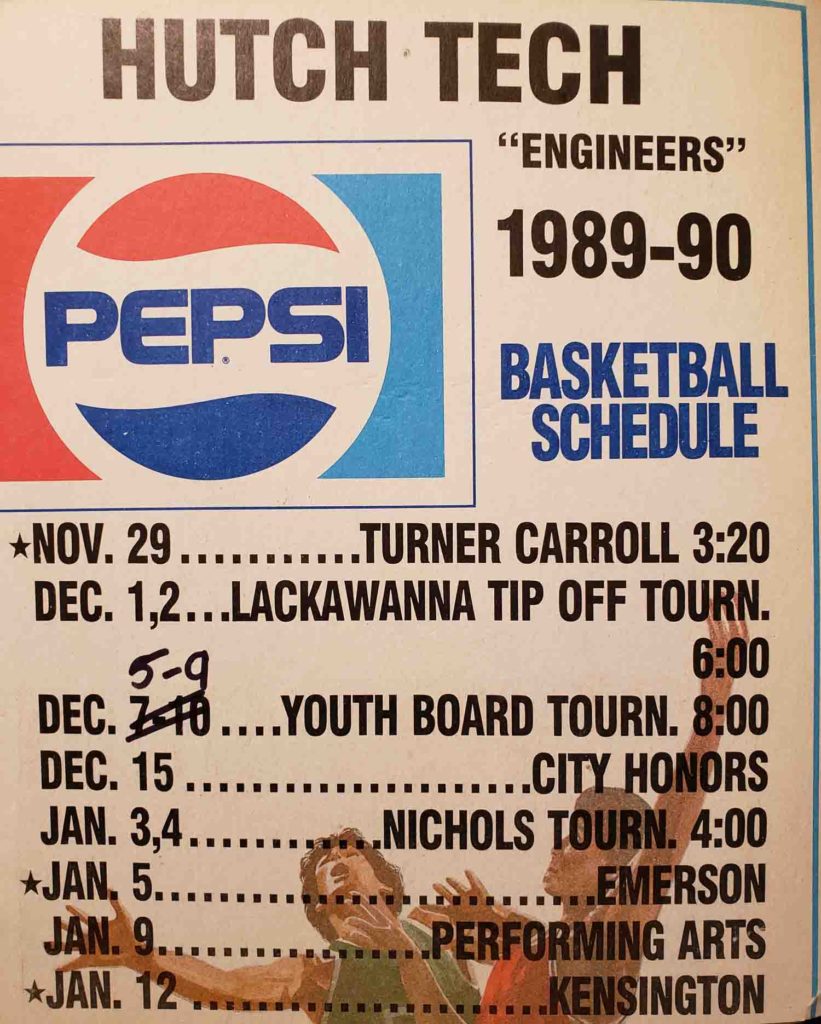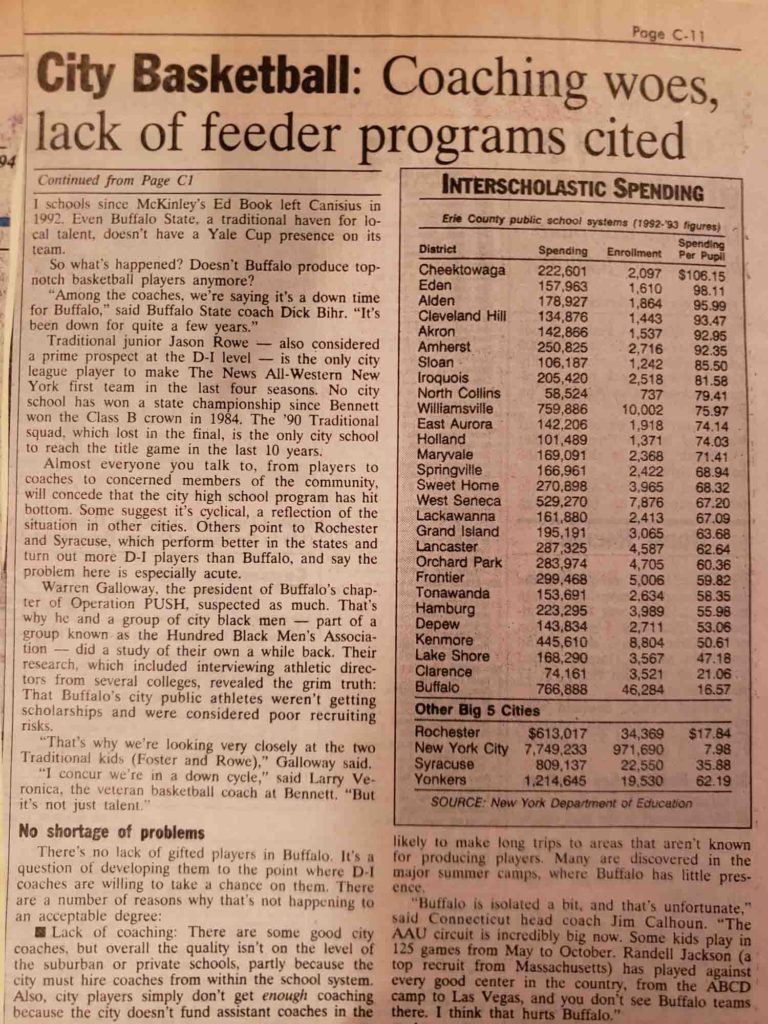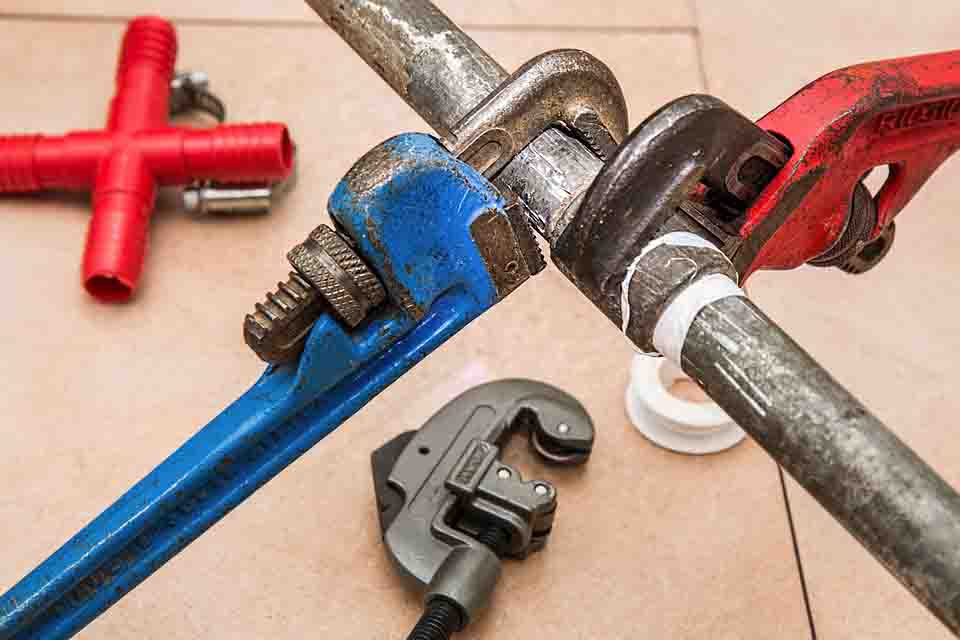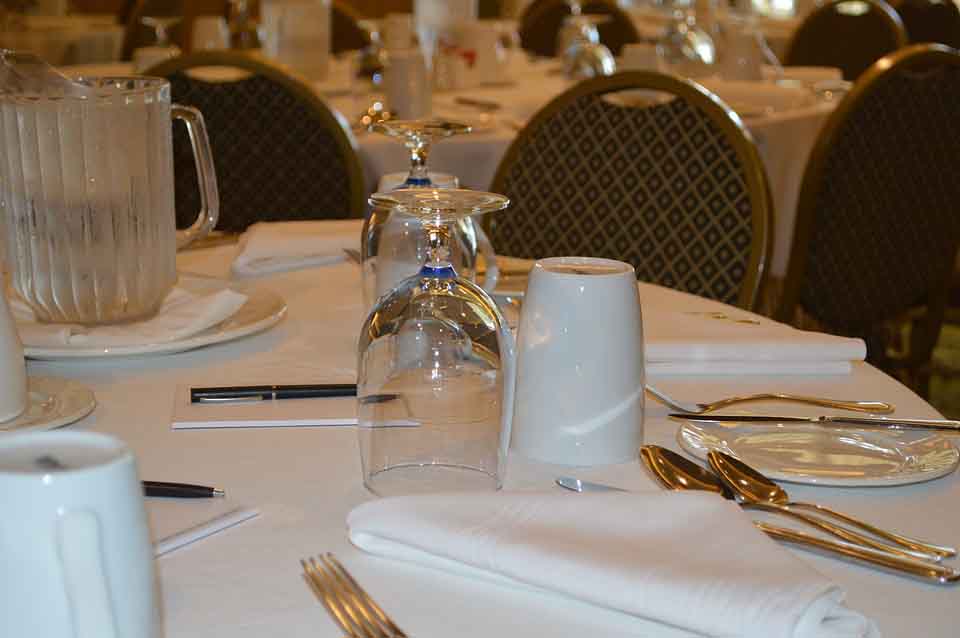
The first principle of my blog is “Creating Ecosystems of Success”. I originally published this series on the Examiner back in 2014 and have subsequently began adding to it. As a teen I dreamt of being a basketball player just like a lot of kids – a dream for which one must have lots of ability, drive, and luck to achieve. My experience turned out to be quite the adventure, and I didn’t formally play basketball beyond high school. The lessons I learned there however, not all of them happy and pleasant, helped me as I progressed into adulthood and into my Science, Technology, Engineering and Mathematics (STEM) career. As mentioned, when I began reposting this series, I’ve started working on an ambitious writing project chronicling my early basketball journey in Western New York.
If I’m able to get my project published, one of the things that will be special about it is that it’s a story involving real people. The project has required me to do multiple interviews. It has been both an interesting and fun experience. As noted by well-established authors like John U. Bacon, who has written numerous books on Michigan Football, some people are open to being interviewed and being characters in book projects, while others are reluctant. Some agree and then drop out of contact, while others are difficult to contact. As a writer I now understand why some names must be changed in the final story.
I consider my breakthrough interview to be that of Jason Rowe, which led to interviews with others, and I want to thank everyone who participated; some of whom I’ve never met personally. My interview with Jason was followed by an interview with Coach Pat Monti and then his star guards, Carlos Bradberry and Tim Winn. It’s been a fun ride with at least one more big interview on the way, so stay tuned.
One of the key figures in my story is Dr. Kenneth Leon Jones, who was the Head Coach of the Hutch-Tech Boys’ Basketball Team during my freshman, sophomore and junior years. Before he passed away at the end of 2018, Coach Jones told me that he was okay with being a character in my story. In my piece about his basketball camp, I discussed Coach Jones, what I learned from him and what he meant to me.
That was just my perspective though and I discovered many other points of view on Coach Jones in my research. I actually started learning of other peoples’ views of Coach Jones in my junior season where I hit some personal adversities. My struggles, in part, contributed to our team’s struggling and spiraling out of control that season. During my personal storm one classmate sought me out one day and told me that he disliked Coach Jones because he had ‘cut’ his brother years earlier. It was then that I realized that there were many backstories to Coach’s tenure at Hutch-Tech in addition to the successes he experienced my freshman year.
“Most of the time, when somebody is giving you orders and instructions, if you’re not emotionally ready – if you’ve got your mind on the wrong part, you’re not going to try as hard. You’re not going to be into it. You’re not going to absorb as much,” said a player I’ll call “Curtis” about Coach Jones in my interview with him. Curtis was the ‘engine’ that powered Coach Jones’ 1990-91 city and sectional championship team. He said a lot of powerful things during our interview, but this quote very much applies to the relationship between coaches and players, much which I experienced myself, or witnessed with teammates.
One of the cool things about working on a project where you’re interviewing multiple people is that you get to hear multiple points of view. Amazingly, my interviews for The Engineers revealed that Coach Jones was multiple things to multiple people. While there was a group of us who held him in high reverence, appreciated his teachings and the mentoring he gave us, he had several detractors as well. Again, he was multiple things to multiple people. His detractors fell into three groups, some of which might surprise you.
The first group consisted of some of the other coaches in our league called the “Yale Cup”, which was the league for all the Buffalo Public Schools. For those readers unfamiliar with the Yale Cup in the late 1980s and early 1990s, it consisted of fourteen schools. Three schools that no longer exist today are: Buffalo Traditional, Kensington and Seneca Vocational High School.
The Yale Cup was a poorly funded league which lacked a Junior Varsity (JV) program at all its schools to properly prepare its players for Varsity competition. Coach Jones and the Buffalo News called this a “feeder system”. The result was a 14-team league where all of the teams were run differently, and where all the coaches had varying levels of experience and interest. This led to drastically different levels of coaching and attention to detail. Some of the Varsity coaches (Coach Jones included), ran an informal JV program for no extra pay simply because there was a need for it.
We also played in outdated and antiquated facilities. Many of the gyms in the Yale Cup league looked like antiquated factory storage rooms with peeling paint and old industrial smells. Most of our gyms had solid white backboards without ‘break away’ rims. Only a few of the courts, like those at Grover Cleveland and McKinley for example, had ‘regulation-size’ courts with the proper dimensions. Our old little gym at Hutch-Tech was more of a small box than anything. Someone I interviewed recently jokingly said that Performing Arts’ gym resembled a bit of a bowling alley.
“The coaches at the other schools thought I had an unfair competitive advantage because of the intramural program I started at Hutch-Tech,” Coach Jones said during one of our interviews. He shared a lot of things with me that I didn’t know as a teen and probably wouldn’t have understood. There were so many layers – so many things happening at once surrounding the Hutch-Tech Boys’ Basketball Team in plain sight and behind the scenes. The same is true for Coach Jones’ two immediate successors who I’ll keep anonymous at this time.

One of the hallmarks of Coach Jones’ tenure at Hutch-Tech was his intramural program. The program was for all the boys in the school so that everyone could get taste of competition and where a champion was crowned. More specifically, it allowed Coach Jones to scout the talent in each class. It wasn’t something he was doing for extra pay, but instead it was something for the students and for the school.
“Some of Jones’ players played angry,” a former player also from Coach Jones’ city and sectional championship team who I’ll call “Pep”, said jokingly. My interview with Pep might be my favorite of all of the interviews I’ve done simply because I could hear that he was having so much fun talking about his playing days. In any case, Coach Jones’ second group of detractors were surprisingly on some of his rosters.
Before getting to Hutch-Tech, the program looked like a utopia from the outside. My research though revealed that there were several conflicts and perpetually hurt feelings involving some of Coach Jones’ players. In some instances, there were personality conflicts. In other instances, there were players who felt they had to prove themselves repeatedly and in general felt unappreciated. Some players felt that they didn’t play enough, and others didn’t play at all though they were given roster spots.
The third group of detractors were outside of the team, but in the student body. The individual who stands out the most for this group is the classmate described above, but there were others. The reality in life is that there are winners and losers, and there usually isn’t enough of everything to go around. This particularly applies to a basketball team where a coach can realistically keep up to 18 players, while only being able to play 8-10 regularly.
In short, not every kid at my school who wanted a roster spot got one, and there are any number of reasons for that. I may write another teaser-piece just on the criteria Coach Jones presented on his ‘invite list’. That’s right, during his tenure, you couldn’t just come out for the basketball team, you had to be invited. This cut a lot of kids out of the picture from the start even before having a chance to show him they could dribble the ball, make baskets, play defense or even run one of his offenses.
Why does this all matter? Like the entire story, it was a sample of what was to come throughout the rest of my life in college and then in the adult world. For some of us who earned roster spots and submitted to his coaching, Coach was father figure, a mentor and a leader. Others on his teams felt like his whipping boys and even underappreciated. Other students didn’t feel like they were given a fair chance to play. Some didn’t like his fundamentals-based way of teaching the game. Some of the other coaches in our Yale Cup league thought he was cheating.
This is why interscholastic sports are good teachers going forward in life. Two of the things you learn about in addition to your sport, are people and leadership – neither of which are easy aspects to manage. As a leader, whether it’s a coach, a college professor, a clergyman or a supervisor, not everyone sees you the same way. Depending on our backgrounds, our values, our individual natures, and where our minds are in seasons of our lives, our experiences with that person will vary, and in many instances, vary greatly. It’s also true that because we may see a given person differently, our truths may be different.
Whether it was the Hutch-Tech Boys’ Basketball Team, my research lab in graduate school, or now within the government agency I work in everyday, there were always individuals charged with leading larger groups or teams. Some people within those teams possess different levels and proficiencies at their crafts. All possess different levels of emotional intelligence. Some are better communicators than others, and some are just better team players than others.
“If I could go back, I would be just as demanding, but more understanding,” Coach Jones said to me several times during our talks. He knew that he drove his players hard and demanded a lot from us. He also concluded that he could’ve been a little more understanding of each player and what they were going through as each of us came from different homes and had different life struggles in our teens.
“If you look at that team that almost made it to Glens Falls, Coach Jones let that team do a lot, but that was all earned. He said, ‘Hey, I’ll let you shoot a three-pointer or a long jump shot outside the offense because I know that we’re playing good enough defense that we’re going to get a possession back,” said a former teammate named “Chris” who played under Coach Jones for four years. Chris was a captain on our team in my sophomore year and a true leader. Some of Coach Jones’ critics thought he was too restrictive and controlling of his teams, particularly on offense.
“When I went to college, I played Division III at the Coast Guard Academy. I didn’t play Varsity, but instead played on the equivalent of our JV squad. We played against a bunch of junior colleges and prep schools. I’ll say that I was able to shoot the ball a lot more,” Chris said. “I look back though, and I think if we were able to play defense like we did in high school, we would’ve been able to keep up with a bunch of those teams. So, shooting the ball wasn’t always the best policy.”
I’ll probably write another teaser-piece just talking about the program Coach Jones created at Hutch-Tech, but for now I’ll just say that if done right, while it can be rewarding, coaching isn’t easy. You must not only have to know your sport and its evolving nuances, but you must also assemble a team of players, develop them and get them to buy into a common goal. That isn’t easy as coaches must also play psychologist, in addition to a quasi-parent in some instances, especially for kids who don’t have fathers or who come from tumultuous homes.
This piece isn’t unique to Coach Jones. He was my coach. If you read my interview with Jason Rowe, Jason stated that while his Coach, Joe Cardinal, was highly scrutinized, his players loved him. Ironically, even though Coach Cardinal was highly criticized, his Bulls coincidentally made deep runs in the post-season play most years. The same is true for Coach Pat Monti who led the LaSalle basketball dynasty. During his 10-year run of dominance leading the LaSalle Explorers, there were numerous critiques about him and his program from the outside. Talking to him and his players on the inside was completely different though.
The first picture used for this post is the schedule for the 1989-90 Hutch-Tech Boys’ Basketball Team. In the late 1980s and early 1990s, Pepsi-Cola of Western New York used to create cardboard schedules for the area high school teams in addition to hosting the Al Pastor Memorial Basketball Tournament for a select number of schools. It was Coach Jones’ second season at Hutch-Tech. I was an eighth grader looking to go into high school and was learning about Coach and his teams through my brother Amahl who was a sophomore that year and his Hutch-Tech yearbooks.
Thank you for taking the time to read this blog post. If you enjoyed this post, you might also enjoy:
• Jason Rowe discusses Buffalo Traditional Basketball, the Yale Cup and State Tournaments
• Niagara Falls basketball legend, Tim Winn, discusses playing in the LaSalle basketball dynasty part one
• Niagara Falls basketball legend, Carlos Bradberry, discusses playing in the LaSalle basketball dynasty part one
• Niagara Falls coaching legend, Pat Monti, discusses building, and leading the LaSalle basketball dynasty part one
• Chris Herren discusses his journey, drug addiction, substance abuse and wellness
If you’ve found value here and think it will benefit others, please share it and or leave a comment. To receive the most up to date content from the Big Words Blog Site, subscribe using the subscription box in the right-hand column in this post and throughout the site. Please visit my YouTube channel entitled Big Discussions76. Lastly, follow me on the Big Words Blog Site Facebook page, on Twitter at @BWArePowerful, and on Instagram at @anwaryusef76. While my main areas of focus are Education, STEM and Financial Literacy, there are other blogs/sites I endorse which can be found on that particular page of my site.










